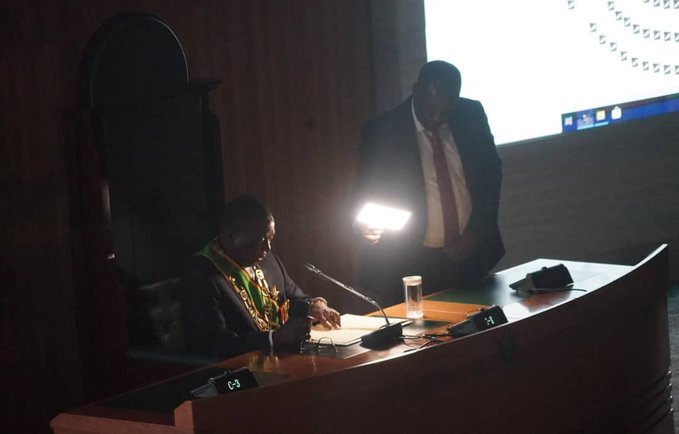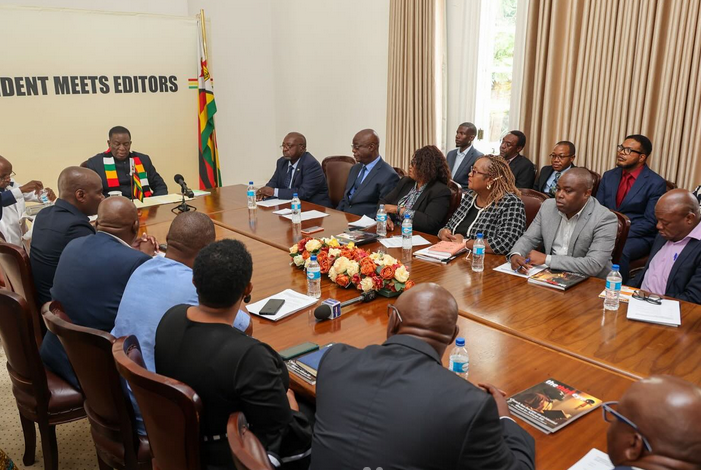ZIMBABWE'S shock move to abolish the multi-currency system last week helped the country avoid a potential "catastrophe", businessman Shingi Munyeza has said. The southern African country last week gazetted Statutory Instrument 142 of 2019, which outlawed the multi-currency regime and re-introduced the local dollar that was demonitised in 2008 after reaching astronomical levels of hyperinflation.
The announcement precipitated a wave of uncertainty that saw basic commodity prices shooting up in a sudden overnight rage, before stabilising. Munyeza, who is a member of the influential Presidential Advisory Council, said the new law was critical for the country's economic revival.
"In any environment where there are sharks and speculators it was difficult for government to say to speculators, ‘get ready'. It was an economic battle that was going on," he told delegates attending a meeting organised by the Institute of Chartered Accountants of Zimbabwe to review the currency changes. "Given another month, we would have plunged into a catastrophe. We must own our currency. No nation has grown without its own currency.
"The United States dollar was just a stop gap measure, in was not going to be sustainable in the long term," the former African Sun chief executive added. William Kavila, the Reserve Bank of Zimbabwe (RBZ) director for economic research, said the country would achieve a great deal of monetary policy autonomy after last week's measures.
He said the introduction of the local currency will increase monetary policy effectiveness as the central bank now has tools to control inflation and maintain price stability. "With the multi-currency system we had no leeway to this. In addition, this is going to strengthen demand for the local currency and enhance its value. This will also strengthen the interbank market as foreign currency will be sold through the interbank market," he said.
"There will be some certainty which will help businesses plan. We don't print the US dollar, so, it is limiting in terms of economic activity. And as long as you are limited, you have problems. "We expect the exchange rate to stabilise and inflation to decline in the medium term. Pricing and account will be made easier under a single, unified currency."
The latest development comes at a time human rights activist Godfrey Mupanga has filed a court application seeking the nullification of new regulations outlawing the use of the multi-currency system in the country devastated by the high cost of living.
In his papers, Mupanga argues that the decision by Finance minister Mthuli Ncube and RBZ governor John Mangudya "to ban the multi-currency system in Zimbabwe prescribed by Section 44A of the Reserve Bank of Zimbabwe Act Chapter 22:15 as legal tender is grossly unreasonable …"
He said the High Court should therefore declare the regulations as null and void "in that they are ultra vires the enabling legislation … the Reserve Bank of Zimbabwe Act Chapter 22:15 and therefore are in contradiction of Section 134(c) of the Constitution of Zimbabwe."
He further noted that Ncube and Mangudya violated Section 134(a) and Section 134(f) of the Constitution of Zimbabwe.
Section 134(c) of the Constitution of Zimbabwe stipulates that Parliament may, in an Act of Parliament, delegate power to make statutory instruments within the scope of and for the purposes laid out in that Act, but "statutory instruments must be consistent with the Act of Parliament under which they are made."
- dailynews
 Zimbabwe announces strict enforcement of axle load limits
Zimbabwe announces strict enforcement of axle load limits  SA decry 'non-existent' Beitbridge border post security
SA decry 'non-existent' Beitbridge border post security  Millions celebrate Diwali festival in India
Millions celebrate Diwali festival in India  Zimbabwe's dollar stock exchange surges 45%
Zimbabwe's dollar stock exchange surges 45%  Gold edges up as traders await guidance
Gold edges up as traders await guidance  Karo Platinum Project capex rises to US$546m
Karo Platinum Project capex rises to US$546m  Young Investment Professional (YIP) Graduate Programme 2019
Young Investment Professional (YIP) Graduate Programme 2019 










 Young Investment Professional (YIP) Graduate Programme 2019
Young Investment Professional (YIP) Graduate Programme 2019
Editor's Pick